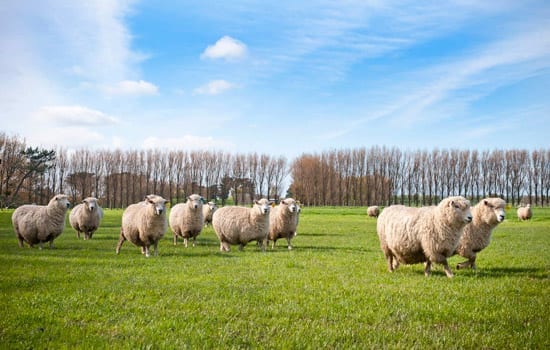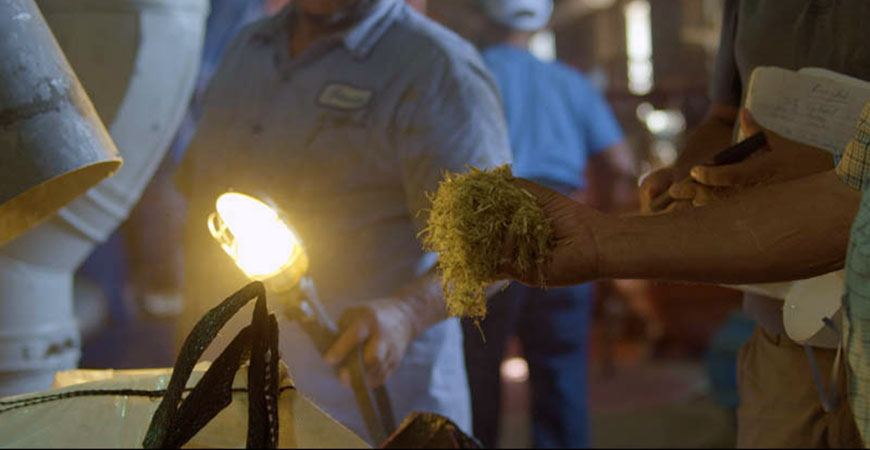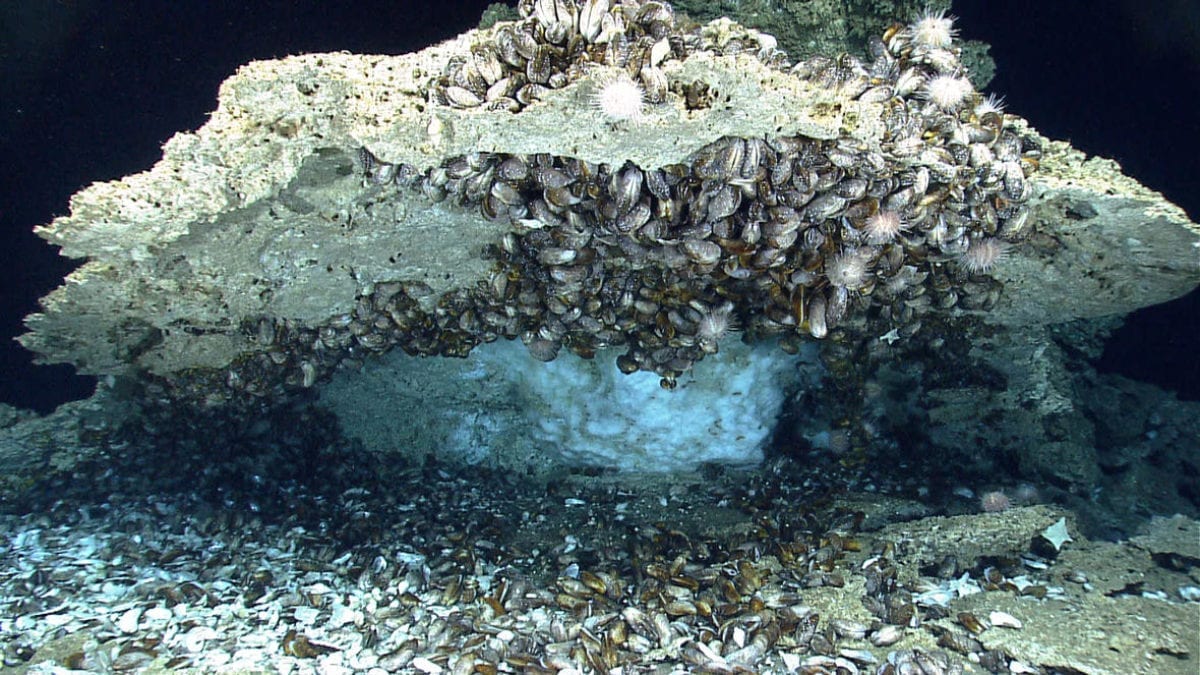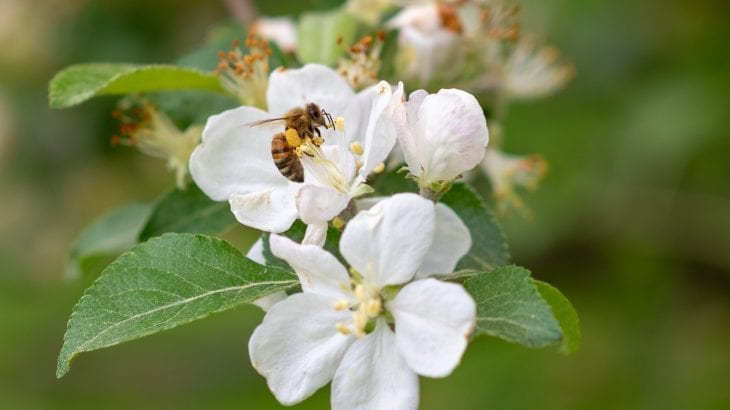
An international research collaboration has made an important discovery in the quest to help lower global agricultural methane emissions.
The team has identified new processes that control methane production in the stomach (rumen) of sheep and other ruminants.
Specifically, they determined the microbes and enzymes that control supply of hydrogen, the main energy source for methane producing microbes (methanogens).
This discovery is important because scientists can now begin to manipulate the process to reduce methane production from sheep, cattle and deer.
The international study, led by Associate Professor Chris Greening of Monash University’s School of Biological Sciences, also involved researchers from AgResearch, and the Universities of Otago (New Zealand), Illinois (USA) and Hokkaido (Japan). The findings are published in the prestigious International Society for Microbial Ecology Journal.
Associate Professor Greening said: “We’re excited about this research because it has strong potential to lead to new strategies that slow agricultural methane emissions, which will vital for the ongoing health of the planet and sustaining economies like ours.”
Previous research has already shown that microbes play an important role in controlling methane levels. Now for the first time researchers understand why.
The researchers studied two types of sheep – those producing high amounts of methane and those producing less. They found the most active hydrogen-consuming microbes differed between the sheep: methanogens were the main hydrogen users in high emitters, whereas non-methane producers (including acetogens, fumarate, nitrate and sulfate reducers) dominated in low emitters.
Similar analysis of the hydrogen-producing organisms found that one group of microbes, the Clostridia, accounted for most of the activity.
Researchers studied hydrogen production in detail in a representative group called Ruminococcus albus. They showed the organism fine-tuned its metabolism in response to hydrogen levels in sheep and this increased energetic efficiency.
These findings lay the foundation for strategies to reduce methane emissions by controlling hydrogen supply. One strategy is to introduce feed supplements that encourage non-methane producers to outcompete methanogens.
“Controlling the supply of hydrogen to the methanogens will lead to reduced ruminant methane emissions and allow us to divert the hydrogen towards other microbes that we know do not make methane,” Associate Professor Greening said.
Learn more: International research alliance discovers new strategies to reduce global agricultural methane emissions
The Latest on: Agricultural methane emissions
[google_news title=”” keyword=”agricultural methane emissions” num_posts=”10″ blurb_length=”0″ show_thumb=”left”]
via Google News
The Latest on: Agricultural methane emissions
- Methane emissions: Australian cattle industry suggests shift from net zero target to ‘climate neutral’ approachon May 7, 2024 at 7:00 am
The US cattle industry adopted a ‘climate neutral’ goal in 2021, but scientists say that ‘misses the point’ in keeping global temperature rises below 1.5C ...
- Tackling the methane climate change equationon May 7, 2024 at 6:34 am
Methane from agriculture is a huge factor in Earth's climate change problem. MIT has developed a new catalyst to take methane out of the equation. The idea is to render agriculture less harmful to the ...
- World Bank suggests actions for lower-emission agricultural land useon May 7, 2024 at 5:23 am
The World Bank has outlined in a report the actions that every country can take to make the global agrifood system more sustainable and achieve markable reductions in greenhouse-gas (GHG) emissions.
- The EPA Announces Final Rule to Cut Methane Emissions, Strengthen and Update Greenhouse Gas Emissions Reporting for the Oil and Gas Sectoron May 6, 2024 at 8:00 pm
The EPA has issued a final rule to strengthen, expand, and update methane emissions reporting requirements for petroleum and natural gas systems under ...
- Is AgriZero NZs making progress towards it's ambitious 2030 methane reduction goals?on May 5, 2024 at 3:05 pm
AgriZero NZ is a public-private partnership between the New Zealand government, Synlait, Rabobank, Fonterra, ANZCO, Silver Fern Farms, ANZ, ASB, A2 Milk and Ravensdown. Established in 2023, it has the ...
- Methane emissions are greatly underestimated by the EPAon May 2, 2024 at 10:30 am
Methane emissions from landfills, urban areas, and across several U.S. states are substantially underestimated by the EPA.
- How cutting methane emissions might slow warmingon April 29, 2024 at 4:34 pm
A new methane plant in Cheatham County has many folks worried. Methane has 80 times the warming power of Carbon Dioxide over a 20-year period which could cause us to warm quicker in the near-term.
- Grape seeds, stems and skins can reduce dairy cattle emissionson April 29, 2024 at 4:28 pm
Researchers at University of California, Davis, added fresh grape pomace left over from winemaking operations to alfalfa-based feed for dairy cows and found that methane emissions were reduced by 10% ...
- Sustainable agriculture summit to help finalise sector-wide emissions reduction planon April 28, 2024 at 1:11 pm
Agriculture sector stakeholders will converge on the Darling Downs in May to discuss how farms can reduce their carbon emissions.
- Waste not, want not: How methane biogases can help us reach our climate goalson April 28, 2024 at 5:00 am
How can the U.S. meet its 30×30 methane goal? Tapping America’s massive organic waste streams as a renewable energy resource.
via Bing News










